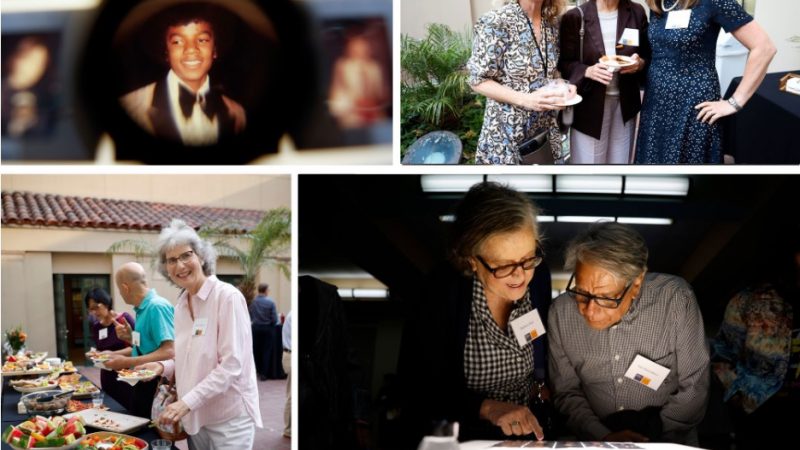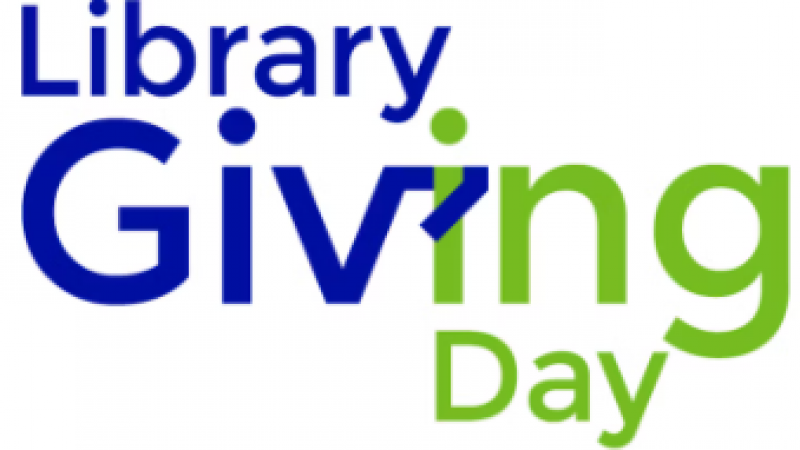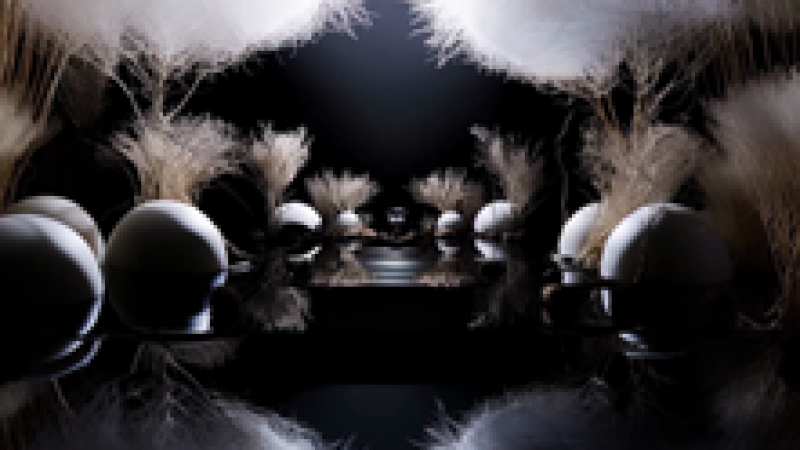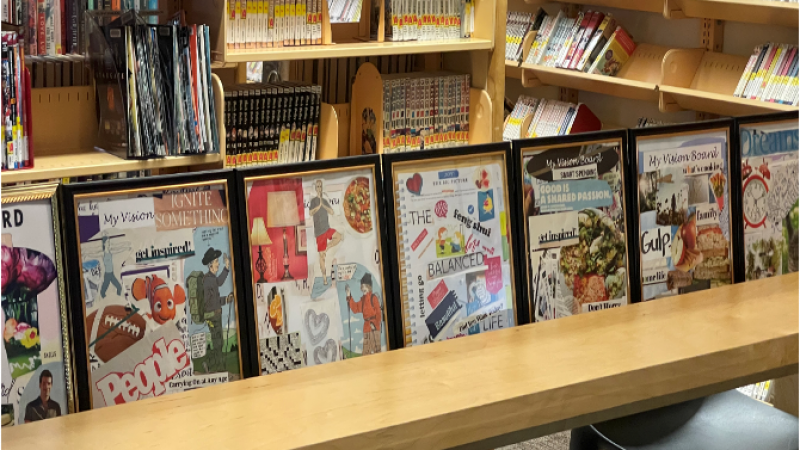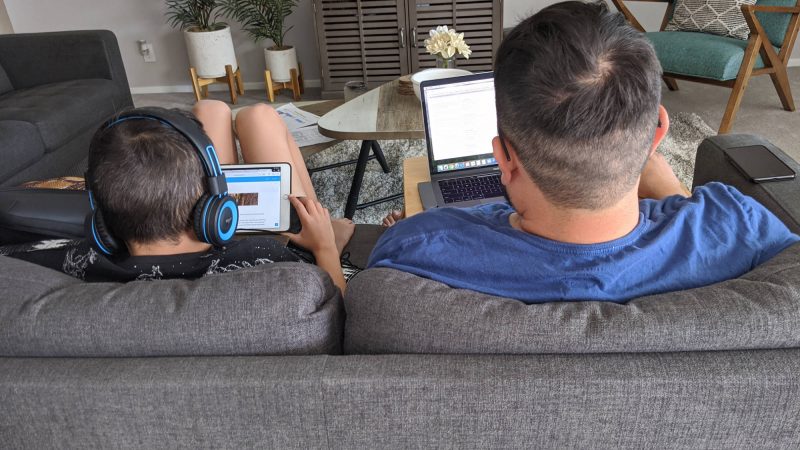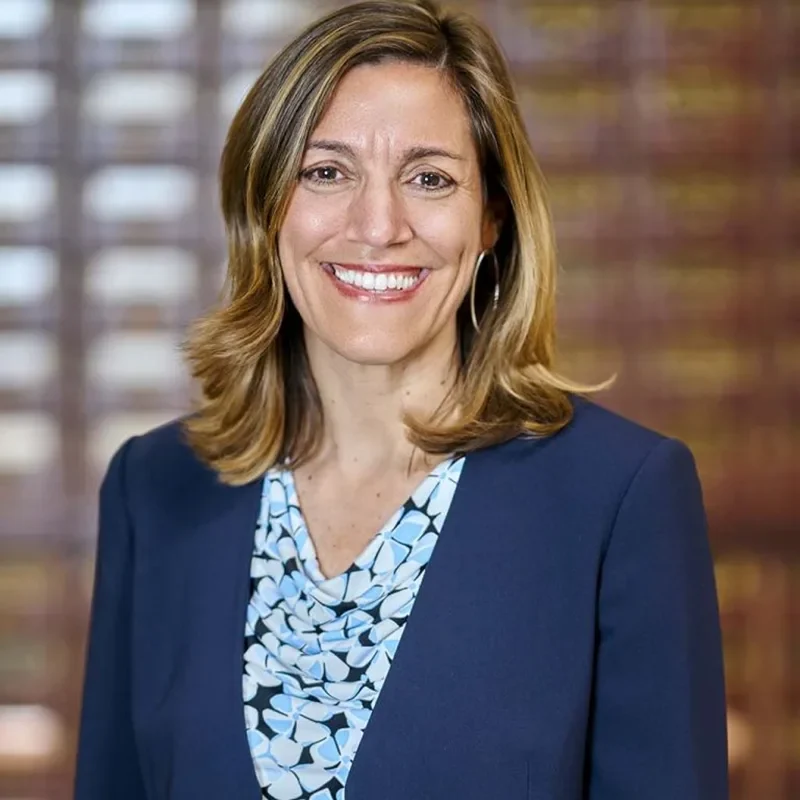Next Tuesday, July 24 at ALOUD, the 17th edition of the annual newer poets program comes to the stage with six of Los Angeles’ freshest voices. Reserve your free ticket here for the event, which is ALOUD’s longest-running program in its 19-year history. What exactly is a “newer” poet? And what is happening on the frontlines of the L.A. poetry scene? To get ready for next week, we caught up with the three guest curators of the event and will be running these interviews over the next few days. In Part One here, Gail Wronsky, a critically acclaimed author of five volumes of poetry, a founding member of the Glass Table Collective, and a professor at Loyola Marymount University, defends West Coast poetics, the beauty of Topanga, and the serendipity of libraries.
 Gail Wronsky with Rabinadrath Tagore.
Gail Wronsky with Rabinadrath Tagore.
You’ve lived in Los Angeles for 26 years, having transplanted from the East Coast. What’s different about being a poet in Los Angeles?
Gail: There is more freedom out here. The West has all these wide-open spaces, but also L.A. has a sense of itself of where new things happen. There are orthodoxies on the East Coast establishment that we don’t have. There’s so much diversity out here—so many ethnicities and languages and that’s hugely important for a writer. But also there’s a welcoming among all these different groups of people. They’re not Balkanized states. I give readings with open-mic people, with hip-hop poets, with language poets, with academic poets, and everyone seems to be excited about poetry no matter what form it takes.
What are your favorite venues for poetry around Los Angeles?
Gail: Beyond Baroque is the best. There are poetry events going on all the time there and they represent the openness and diversity of Los Angeles poetry. They don’t cater to one school or one group of poetry. I also think the readings that Elena Karina Byrne hosts at the Ruskin Arts Center are really good. The few bookstores like Skylight Books and Book Soup are great places to go hear readers.
How is your own writing impacted by the landscape of Southern California?
Gail: The first thing that influenced me when I moved here was Mexican culture. I started reading Mexican and Chicano/Chicana poets and I got so excited about the use of Spanish language in English language poetry and ideas of translations. That interest led me to work with the Argentinean poet Alicia Partnoy, whose work I translate, and she translates my work, so that back and forth has influenced me a lot.
The other thing is the natural beauty of this place. I live in Topanga Canyon, which is to my mind one of the most beautiful places on earth. I go to the ocean. I’m in the mountains. I like to go to the desert. The sheer physical beauty of Los Angeles is something people don’t talk about enough, and that has made its way into my work.
As a guest curator for this ALOUD event, how did you approach selecting “newer” poets?
Gail: The first person who came to my mind is Mia Carli, who was one of my students and is now in her first year at the Iowa Writers’ Workshop. She is the most exciting young poet I have come across in years. She runs a mile a minute on the page and she has so much power and a command of language, that I’m always stunned by what she writes, so I wanted to introduce her to the L.A. poetry world.
The opposite end of the spectrum is Paul Lieber, who has been a part of the L.A. poetry scene. He does a poetry program on KPFK. He’s done a lot of readings, but his first book is just out and that seemed like an occasion to mark. He isn’t in some ways a new poet, but putting that first book out is a new thing. I like the fact the one of my readers is young and just starting, and another one is not, but is taking a big step in his career.
On the cusp of us gathering at the Central Library to hear these poets, why do you think libraries are important to writers?
Gail: Libraries are home, particularly to poets. When novelists are working on something, they’re in a world they create. But poets need to pick and hunt and stumble off of things to find interesting information. All of that eventually comes to play in your poetry—maybe 10 years later. Information is vital to poets. You can go to the library with nothing in mind, and you can wander through aisles and spawn something. Serendipity happens at libraries.
A poem by Gail Wronsky:
True, flax can parch, and oats can parch, and poppies
California
Chattering of children and bird-cages—
and Chinese cooks, and the sunlit haze of the coast.
*
As soon as the sea-water touched air, it roared like a violent ghost.
*
A wave is not an ocean. A peak is not a mountain.
Anyone who has swum or climbed knows this.
Anyone who seeks asylum knows this.
*
Meet Nick Dorsay, the record producer.
His hair is woven. His jacket has flown in from hell.
*
It’s true—flax can parch, and oats can parch, and poppies
can hold sway over the countryside like a kind of silky a capella
r & b. And all of it becomes a part of someone’s future
nocturnal luxury, or someone’s persuasion, or
their one-man show.
*
Nourished by caverns’ wine and the bread of roadtrips.
Nourished by dawn and the campgrounds of shadows.
Nourished by glaciers and sage and sitars.
*
We are dismembered by jealousy, cruelty, and inaction
on the part of people who know us.
*
Something now about the quality of light.
It’s no match for wind, or fire.
It shines on dogs and lawn chairs.
Noirishly.
–Posted by Bridgette Bates
